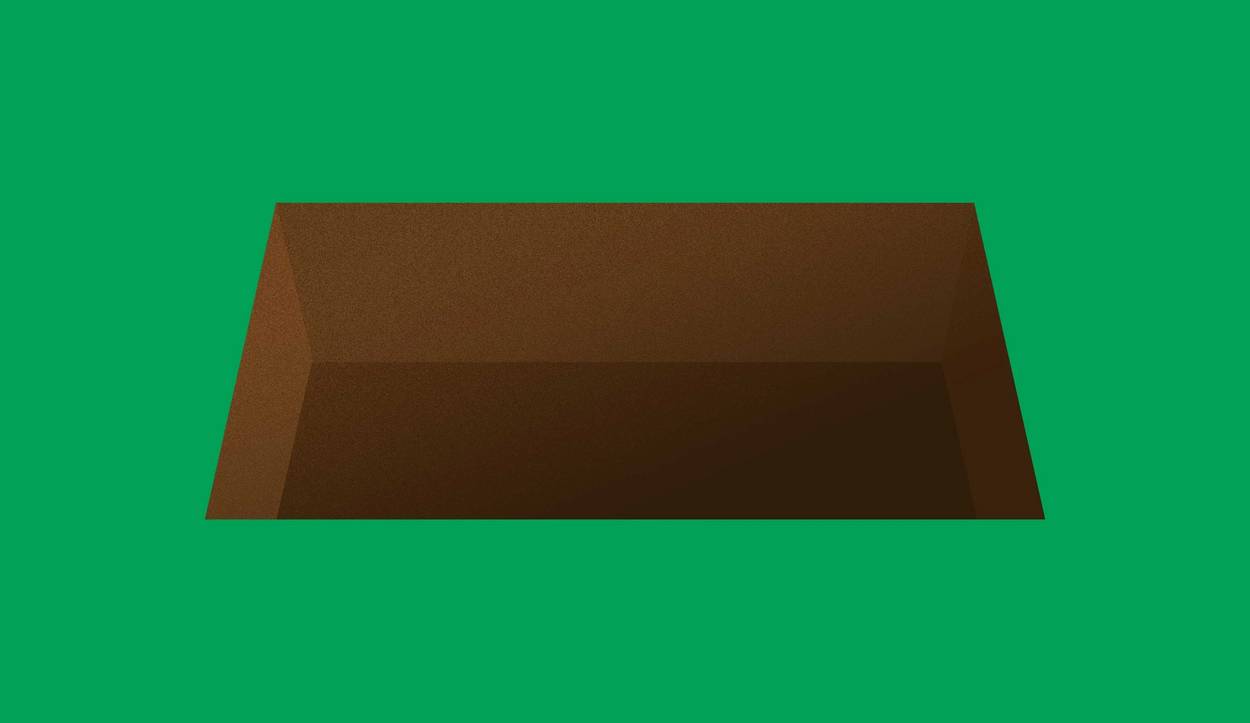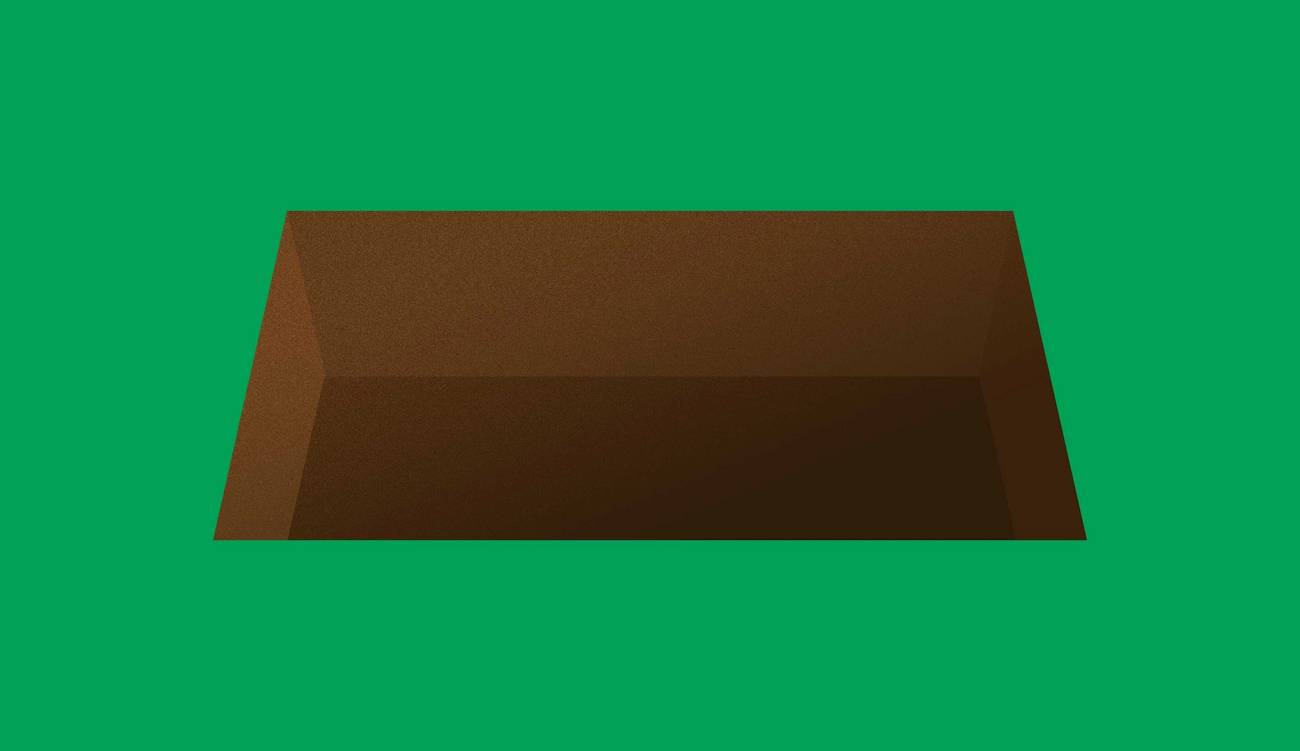American Funerals
There’s a time for goodbyes




I had an uncle by marriage, my aunt’s marriage, who went to jail for forging the annual statement of the bank his father had founded on the Lower East Side in the back of his tailor shop. The bank had been a phenomenal success. It moved to the Bronx in a grand building and immigrants put their life savings there. In the early 1930s the bank closed. Police on horses rode up and down the Grand Concourse while desperate men and women rioted in the street. My uncle who was then president of the bank was soon arrested for falsifying the annual report.
The papers loved the story. Cartoons of him with a big nose and a dollar sign on his belly appeared all over America. He served his time in jail, came out and was given work in his wife’s family shirt company, in charge of the pajama division.
Poor Uncle Bernie. I never saw him smile. He played a squeaky violin. He was sad like a three-week-old carved pumpkin. And then when I was still in college he died.
The funeral was at Frank Campbell’s. The pews were packed. My mother’s eyeglasses got caught in her veil. The rabbi spoke of the man we have come to bury today. “What an honest man he was. What a good business man he was. He was so honest that the angels in heaven would have trusted him with their golden harps.”
The funeral attendees squirmed in their seats. My mother covered a nervous giggle with her white linen handkerchief. Mourners were coughing and blushing and several left their pews to gather outside on the street. The poor rabbi had been drawn like a moth to flame, to the one attribute that might have been better left unpraised.
It later turned out that Bernie had stolen a significant amount of money from the pajama department of the family shirt company. That fact was kept a secret, stockholders left in the dark.
My father’s sister, my Aunt Bea, was an extra-extra-plus size. Heavy rolls of pink flesh cushioned her body. Her very short, small, skinny husband, Dan, owned a jewelry shop in Queens and the two of them went to rumba contests in the Catskills and had a shelf of trophies to show for it. My mother did not like her sister-in-law. She was, my mother explained, an embarrassment. We lived on Park Avenue, but it took me many years to understand that it was in fact my family that was the embarrassment, not Aunt Bea’s.
When Dan Kreisberg died, my father paid for the funeral service, which he insisted be held in Manhattan at the Riverside Memorial Chapel. We sat in a room with about 50 other mourners. Who were they? I had no idea. I am in high school. I am wearing bobby sox and saddle shoes. I am wearing a girdle that cuts into my waist as if trying to saw me into two parts.
The rabbi stands in front of us holding a pack of 3-by-5 cards he refers to from time to time. He gets to the end of his remarks and he says: “And now it is time to say goodbye to this beloved husband, father, friend, Michael Schwartz.”
There is a gasp from the mourners sitting in neat rows before him. Dan Kreisberg was not Michael Schwartz. He was not a gangster who had changed his name. He was a jeweler from Queens, whose small store would now be closed forever.
The mourners were shocked. Even in death, this little person was denied his place in the sun or the dark, depending on your degree of piety. My mother was amused. Speak of kicking a man when he is down!
Then there was Judge Albert Cohn’s funeral. He was Roy Cohn’s father. He had believed in the America of Emma Lazarus and Abraham Lincoln. He had left a note asking to be buried near his own parents in one of the City of the Dead cemeteries by the side of the L.I.E, where lifeless huddled masses huddled. His wife, Dora, Bernie Marcus’ sister—and so part of my family for all occasions holy and not so holy—wanted to bury him in her family mausoleum with her parents. It was a cement structure with room for more. She did what she wanted. No complaining from the dead was heard by the those gathered on chairs outside the mausoleum.
Roy Cohn was buried there later. As he was dying of AIDS, he had his assistants bring him young boys from the docks to enjoy in his waning days, according to the Nicholas von Hoffman biography of Roy. Because of an imaginary picket line of my own construction I did not go to that funeral, which turned the family mausoleum into a Superfund site, waiting for future generations to clean up.
In a green hilly cemetery somewhere in Westchester my mother was buried at age 52. I was 27. She had purchased a plot of four graves, one for her, one for her husband, and one for each of her children. The graveside overlooked the Hudson and we walked through patches of snow to reach it early one March morning. On the way back to the city in a long black car my husband, a playwright, asked me loudly, “How much money are we going to inherit?” I said nothing, but the word divorce, jumped into my head in capital letters.
A few years later my Aunt Bea was buried in that same plot, which was now owned by my father. It was cheap to bury his sister there. I consoled myself with the fact that my mother would never know who shared her final resting place. If she did she would have had a hard time resting.
Then my father died. His new wife, Honey, one of my father’s longtime old mistresses, and her son, who turned out to be my half-brother, buried my father in one of the two remaining spots while freight boats floated by on the Hudson River and cold winds blew across the hill. One spot was left for Honey, but she soon moved to Florida to be near her son and sent me a box with a tiny china spaniel in it. Your mother, the note said, died with this piece in her hand. But I was there when my mother died and what was in her hand or on her hand was her rather large diamond ring that my father had then reset for Honey.
I didn’t want it anyway. It seemed to me like wearing someone else’s soiled underwear.
I went to the mausoleum one more time when my cousin Jim died. He was the smartest of all the spawn. He began his life with no money at all. His school fees were paid by my mother and her brother. He had gone to Harvard and Harvard Business School, and became a partner at Goldman Sachs. He was the first and so far only Jewish chairman of the Metropolitan Opera. He loved classical music and Julliard and he gave generously to scholarship programs for young musicians and for classical music groups in the towns near his summer estate on the ocean.
There, he had an indoor swimming pool and he would do laps listening to operas in the early hours of the morning when he couldn’t sleep. He had desires that he could only reveal to special people and I wish I could have—the world could have—made it easier for him to live as the person he actually was. He was a man like Aschenbach in Thomas Mann’s Death in Venice. But an Aschenbach who hid, ultimately not very convincingly, behind well-locked gates.
When the moment came, he supported AIDS organizations, a children’s AIDS program, and AIDS medical research. I gave him Randy Shilts’ book And the Band Played On. He was not a reader. But he asked me for more books like that and I gave him many. Sadly, there were many. He did not share them with his wife. She, too, was not a reader.
The night before his funeral at Frank Campbell’s a reception was held on the second floor and there was a long line of mourners waiting to express their sympathies to his wife. Many of them were men, men in pairs, men in beautiful suits and delicate hands made for the piano, or a wind instrument, or the ballet. Jim’s wife sat on a chair at one end of the room and the visitors came to speak to her, in ones and twos. The scene was a mix of a downtown Village bar and the Union Club’s main floor. I thought I was on a cruise ship that had been denied a berth at ports around the globe.
At the mausoleum the following day. I sat with his good friends, two men who had come to his hospital bed every day for the preceding eight weeks along with a horn player who came with his instrument and a beautiful young Asian boy violinist who was very appreciated by the patient in his hospital bed.
At the cemetery there was a short service led by a rabbi but she hadn’t known Jim or his wife or any of the small crowd of mourners. There we were 10 feet or so away from the bodies of the other mausoleum permanent residents. Dust to dust to dust—or was Roy Cohn in there plotting to destroy democracy and having the last laugh on all of us?
I suppose I should forgive G-d for all His casual cruelty, and maybe tomorrow I will.
Ah America, America the beautiful, for spacious skies—but still a disappointment.
Anne Roiphe is a novelist and a journalist.